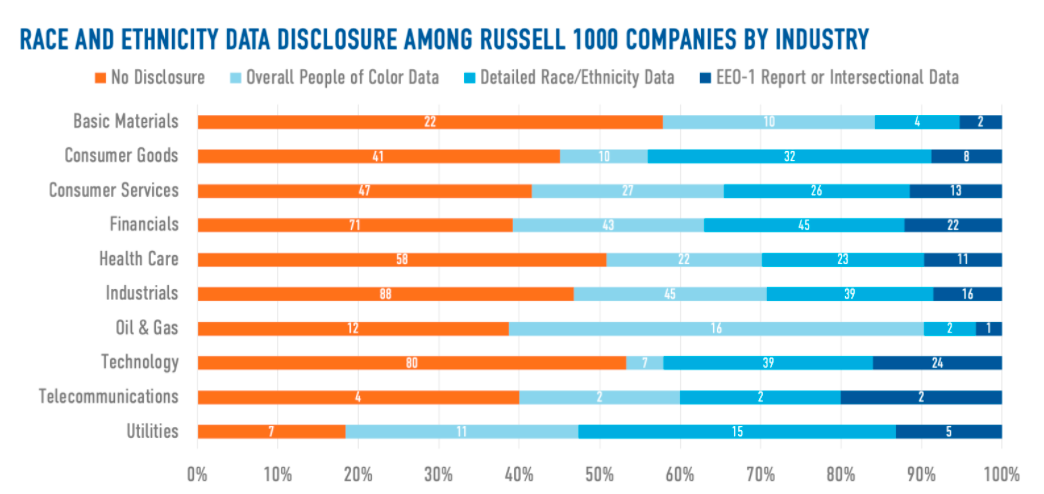
In the weeks following the murder of George Floyd in May 2020, many companies said they would “stand by” the Black community and pledged to ramp up their DEI (diversity, equity and inclusion) hiring efforts. But as time went on, ongoing evidence suggested that companies have curbed such work — one factor driving the “Great Resignation.” The message many Black Americans have received is that if they are going to experience true social change, such messages from large organizations rang hollow, so they need to take on such challenges on their own.
Almost two years after those promises were made, our friends at Just Capital recently released their own research to gauge the current state of DEI data and disclosure. The results are mixed: On one hand, companies are more transparent than they were in 2021, but the U.S. public believes companies aren’t matching their deeds with actions.
Bottom line: People of color are still waiting to be shown the receipts for the $50 billion that companies say that they’ve committed to DEI pledges.
Editor's note: Be sure to subscribe to our Brands Taking Stands newsletter, which comes out every Wednesday.
So, where’s the progress? Just Capital’s researchers found that based on the most recent data, 55 percent of companies in the Russell 1,000 disclosed some form of DEI data as of September 2021. That’s up significantly from 32 percent in January 2021.
Meanwhile, in September of last year, 11 percent of these companies released their EEO-1 Reports or intersectional data, both of which Just Capital describes as the “gold standard” in demographic reporting. That’s a jump from 4 percent a year earlier.

Yes, those are steps forward, but as Just Capital sums up the efforts, “The data exists, it’s just a matter of sharing it publicly.”
As far as industries that are moving forward faster on such disclosures, they include the utilities, oil and gas, and the financial sector — the latter two especially when it comes to the public release of their EEO-1 or intersectional data reports.
The financial industry in particular has had the fastest growth in disclosure rates, according to Just Capital’s survey.
Laggards? Basic materials (as in companies that develop and process raw materials), technology, healthcare, industrials and consumer goods still have some catching up to do.
Even if companies don’t believe they have a moral or ethical obligation to do more to ensure everyone has a fair shot in building a career within the private sector, there are pragmatic reasons for pushing ahead such efforts — for example, the U.S. Securities and Exchange Commission (SEC) is heavily leaning toward that direction, as is Nasdaq. And, as we’ve regularly covered here on TriplePundit, there is an economic case for building a company that looks like the America of the 2020s.
“Disclosing workforce and board demographics is an important step for companies to jumpstart or even refine their DEI initiatives. By doing so, they provide a baseline to track progress and a method to hold themselves accountable to improving diverse representation,” wrote Just Capital’s Kavya Vaghul, lead author of the report. “And, as the rise in calls for transparency has shown, they’re elements stakeholders are increasingly looking for from corporate America.”
Image credit: Mikelya Fournier via Unsplash

Leon Kaye has written for 3p since 2010 and become executive editor in 2018. His previous work includes writing for the Guardian as well as other online and print publications. In addition, he's worked in sales executive roles within technology and financial research companies, as well as for a public relations firm, for which he consulted with one of the globe’s leading sustainability initiatives. Currently living in Central California, he’s traveled to 70-plus countries and has lived and worked in South Korea, the United Arab Emirates and Uruguay.
Leon’s an alum of Fresno State, the University of Maryland, Baltimore County and the University of Southern California's Marshall Business School. He enjoys traveling abroad as well as exploring California’s Central Coast and the Sierra Nevadas.














